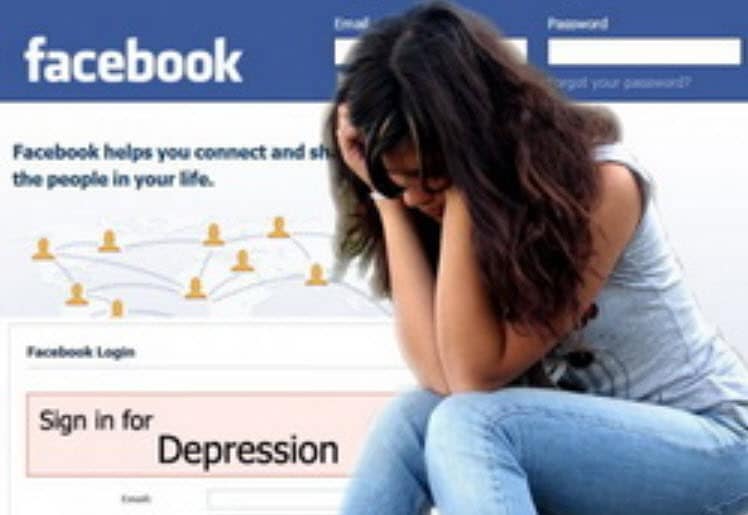[From a Jan. 10, 2019 article by Kristen Monaco, Staff Writer, MedPage Today]

Facebook “addiction” — not only spending lots of time on Facebook but also seeing negative social impacts from it, yet craving it and trying unsuccessfully to cut down — was associated with impaired decision-making in one study and with self-perceived physical ill health in another.
In the first, researchers gave 71 participants recruited from a German university 100 tries each at the computerized Iowa Gambling Task, in which players should learn from prior rewards and punishments to make better bets — in other words, a test of value-based decision-making.
Higher scores on the Bergen Facebook Addiction Scale were significantly correlated with worse performance in the final 20 game trials (r=-0.31, P<0.01), found Dar Meshi, PhD, assistant professor of advertising and public relations at Michigan State University in East Lansing, and colleagues. Their study was published online in the Journal of Behavioral Addictions.
This finding, that Facebook “addicts” made riskier decisions than non-addicts as the game went on, implies that they were more likely to ignore the potential for losses, the investigators said. Notably, there was no such association between Facebook addiction and decision-making earlier in the game.
The study “further supports a parallel between individuals with problematic, excessive SNS [social networking site] use and individuals with substance use and behavioral addictive disorders,” they concluded. Research published earlier this week also found an association with depression.
Excessive social networking can seep into other aspects of users’ lives as they build up tolerance to sites’ social rewards, Meshi and colleagues said, just as opioid users require increasing doses over time to achieve the same effects. “These excessive SNS users also experience conflict with others because of their use, and when attempting to quit, they display withdrawal symptoms and often relapse,” the researchers wrote.
While many in the mental health field have come to accept online behaviors as potentially addictive, the American Psychiatric Association has not formally recognized any. The closest it has come is designating “internet gaming disorder” in its current diagnostic manual, DSM-5, as a possible condition warranting further study. Addictions to other online activities such as social media are not mentioned at all.
And that aside, one specialist contacted by MedPage Today urged caution in interpreting the current study owing to its design.
“While this area of research is intriguing and it is possible that excessive digital media use may have adverse effects on cognitive functioning, this particular study does not provide strong support one way or another of whether decision making dysfunction may actually be a consequence of excessive digital media use,” commented Adam Leventhal, PhD, director of the University of Southern California’s Health, Emotion, & Addiction Laboratory in Los Angeles, who was not part of the study.
“Because of the study design, we cannot determine whether the risky decision making patterns preceded or followed excessive Facebook use in the participants. It is possible that people who make risky decisions are more drawn to highly-stimulating digital activities like social networking platforms because it suits their sensation-seeking personality styles,” he said.
Facebook and Physical Illness
In a separate study conducted by Bridget Dibb, MSc, PhD, of the University of Surrey in England, Facebook users who reported feeling inspired by friends they perceived as better off tended to feel more sick themselves.
From a survey of 165 Facebook users, the one specific type of social comparison linked to more physical symptoms was the positive feeling of seeing someone better off, Dibb reported online in Heliyon.
“The positive upward comparison relationship in this study shows that the participants were feeling hopeful and inspired but at the same time were aware of worse physical health,” she wrote. “It is also possible that those who had more physical symptoms tended to engage in more positive upward comparison to be more like the better-off target. This may be a coping strategy and would account for why those engaging in upward comparison would also be more aware of their symptoms.”
In contrast, negative feelings after seeing the better-off person (“I could never be like him or her”) weren’t significantly associated with physical health, nor were the negative feelings (“What if I become like him or her?”) or positive feelings (“At least I’m not like that”) after encountering somebody comparably worse off.
Moreover, the more survey respondents said they felt that Facebook was part of their lives, the more physical ailments they perceived personally.
Dibb acknowledged that the study design precluded any causal links between physical health and Facebook use; she suggested a longitudinal study to show whether social comparison leads to perceptions of ill health or if those who experience worse health are inherently more likely to seek inspiration from peers. The experiment by Meshi and colleagues also only documented an association, not a causal relationship.
Moreover, neither study accounted for use of other social media platforms such as Instagram and Twitter.
